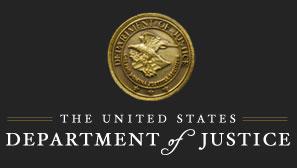
Former Executive Admits Guilt in Antitrust Conspiracy Affecting Water Treatment Chemicals
A former executive pleaded guilty in the District of New Jersey for his role in a conspiracy to eliminate competition by rigging bids, allocating customers, and fixing the price for liquid aluminum sulfate sold to municipalities and pulp and paper companies in the United States.
Brian C. Steppig, former director of sales and marketing for a water treatment chemicals manufacturer headquartered in Lafayette, Indiana, admitted to agreeing with competitors, from approximately 2005 until February 2011, not to compete for contracts for liquid aluminum sulfate, a coagulant used by municipalities to treat drinking and waste water, and by pulp and paper companies in their manufacturing processes.
“Today’s result reflects the Antitrust Division’s ongoing efforts to hold accountable those who seek to corrupt the competitive process and cheat customers,” said Assistant Attorney General Makan Delrahim of the Justice Department’s Antitrust Division. “This offense was particularly egregious, counting among its victims cities and towns throughout the Southeastern United States that relied on the conspirators’ products to provide clean water to their residents.”
“The FBI is thorough in ensuring that anyone intent on corrupting our free market system is brought to justice,” said Special Agent in Charge Timothy Gallagher of the FBI's Newark Division. “Corruption and collusion at any level in our society is unacceptable as it has such a negative impact on the consumer.”
According to court documents, Steppig and his co-conspirators agreed not to pursue each other’s historical customers. To carry out that agreement, Steppig and his co-conspirators discussed prices to be quoted to customers and submitted intentionally losing bids to favor the intended winner.
A violation of the Sherman Act carries a maximum penalty of 10 years in prison and a $1 million fine for individuals. The maximum fine for a Sherman Act charge may be increased to twice the gain derived from the crime or twice the loss suffered by the victims if either amount is greater than the statutory maximum fine.
Including Steppig, two individuals and one company have pleaded guilty to charges arising out of this federal investigation of collusion in the liquid aluminum sulfate industry.
The investigation was conducted by the Antitrust Division’s New York Office and the FBI’s New Jersey Office. Anyone with information regarding price fixing, bid rigging or customer allocation in the liquid aluminum sulfate industry should contact the Antitrust Division’s New York Office at 212-335-8000, call the Antitrust Division’s Citizen Complaint Center at 1-888-647-3258 or visit www.justice.gov/atr/contact/newcase.htm.
